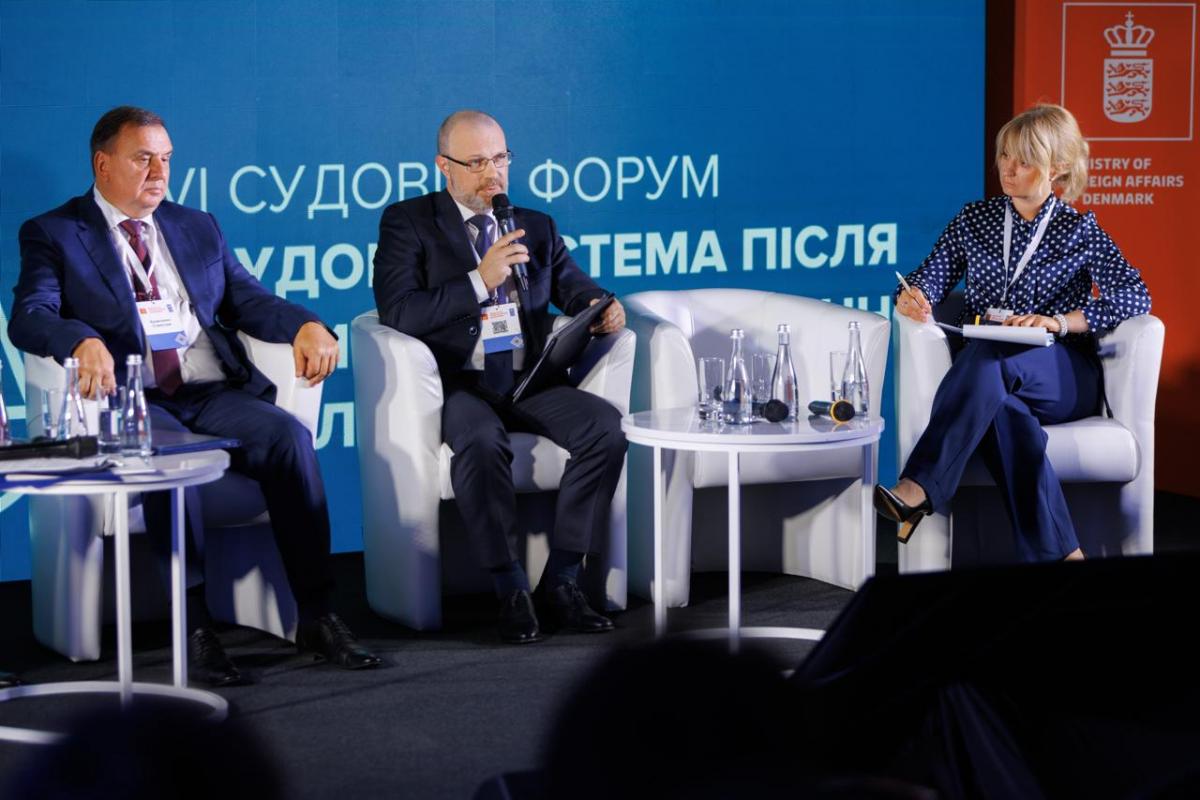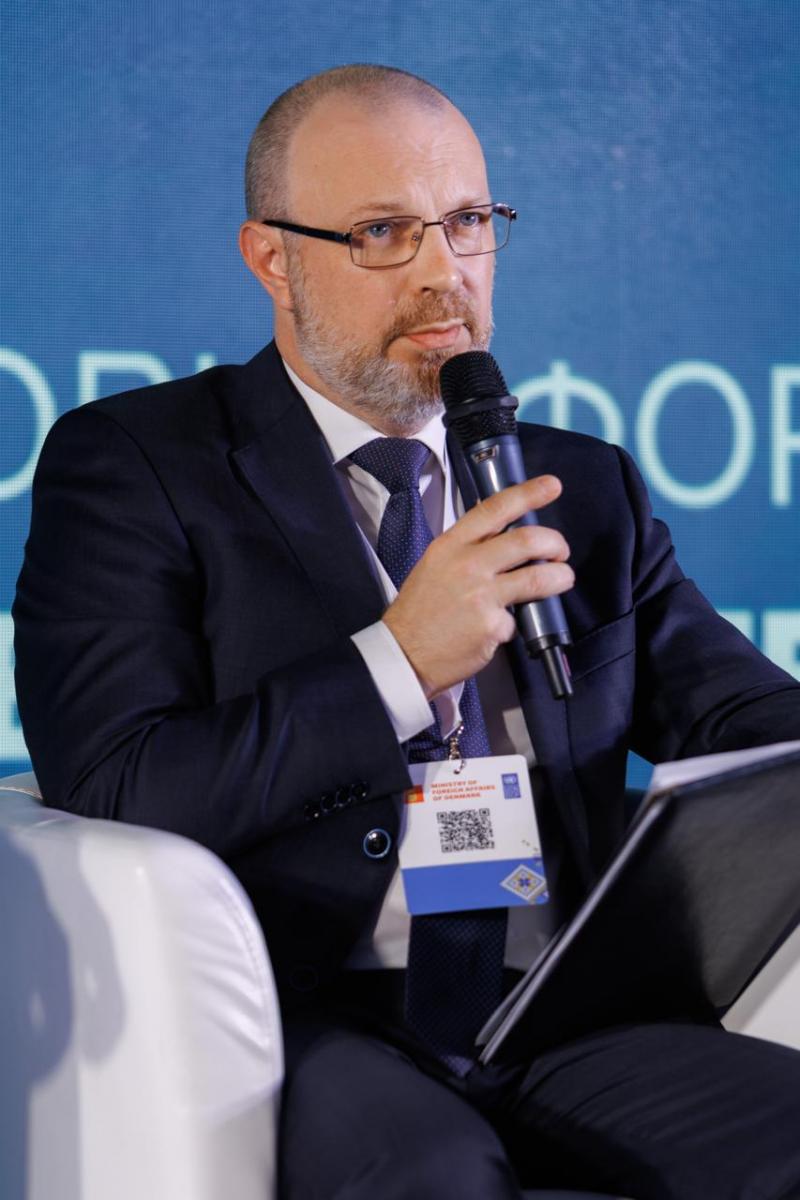
On September 09, 2025, the VI Judicial Forum “The Judiciary After War: Challenges, Solutions, and Paths to Development” took place in Kyiv.
The event was organised by the United Nations Development Programme (UNDP) in Ukraine in partnership with the Government of the Kingdom of Denmark, which provided the relevant financial support.
The participants of the Forum were welcomed by the President of the Supreme Court Stanislav Kravchenko, Ambassador Extraordinary and Plenipotentiary of the Kingdom of Denmark to Ukraine Ole Egberg Mikkelsen, and UNDP Resident Representative in Ukraine Auke Lootsma. In their speeches, they emphasised that building public trust in the judiciary and continuing judicial reform are essential prerequisites for Ukraine’s sustainable development in the context of European integration.
One of the topics discussed was the judiciary’s capacity to function under present-day challenges. Speakers highlighted staffing shortages, material and technical support for courts, and the safety of judges.
Deputy Chairman of the High Qualification Commission of Judges of Ukraine (HQCJ) Oleh Koliush, in his report, addressed the issue of staffing courts of first and appellate instance with professional personnel in the post-war period.
He reminded the audience that after the introduction of the qualification assessment procedure in 2016, many judges resigned. The problem was aggravated by the termination of the mandate of the previous Commission in 2019. The work of the HQCJ was only resumed in June 2023 after the High Council of Justice appointed a new composition of the Commission.
At that time, Ukrainian courts had more than 2,000 judicial vacancies. Between 2023 and 2025, the Commission completed a number of procedures initiated by its previous composition, recommended hundreds of candidates for judicial appointments, renewed the membership of the Public Integrity Council, and appointed members of the Public Council of International Experts. A competition for 550 positions in appellate courts was announced, and more than 200 judges underwent qualification assessments, including 108 judges who had been appointed for the first time to a five-year term.
Despite these efforts, the shortage of judicial personnel remains significant. As of
September 01, 2025, there are 2,198 vacant judicial positions across all court levels. This is due, in particular, to judges resigning on various grounds, with the number of resignations exceeding new appointments.
The HQCJ continues its active work to staff the judiciary: competitions for appellate courts, large-scale recruitment for local courts, and a competition for the High Anti-Corruption Court are ongoing. The Commission is also preparing for competitions to fill positions in newly established specialised administrative courts, including measures to appoint members of the Expert Council.
Oleh Koliush stressed the need to make the judicial profession more attractive to highly qualified lawyers, which requires creating proper working conditions, regulating workloads, and ensuring social guarantees.
The Forum was attended by judges of the Supreme Court, representatives of the Council of Judges of Ukraine, the Constitutional Court of Ukraine, the State Judicial Administration of Ukraine, the Judicial Security Service, the Ministry of Justice of Ukraine, the Ombudsman of the Verkhovna Rada of Ukraine, as well as international organisations and the diplomatic corps, demonstrating the international community’s continued support for Ukraine.


